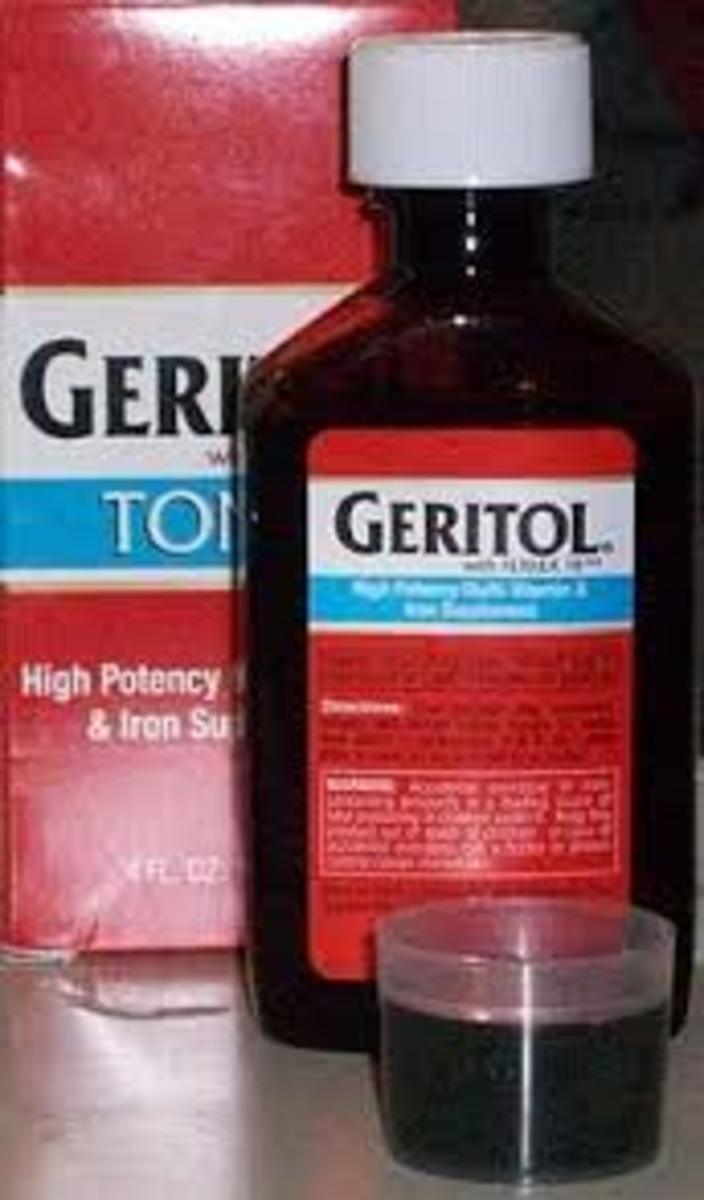Vitamins and the RDA Equal Confusion
Where Does One Start?

Conditioning, or, We've Been Duped!
More and more people are beginning to realize that "healthy" is not a prescription drug. Once you have symptoms, something in the body has needed attention for some time. It is possible to live much longer than our average of 77.5 years, and still be active and healthy well into our 80's, 90's and older. Actually, biologically we should be able to live to 130 years old and still remember who we are! There are several things we can do to live longer and healthier lives, and vitamins are crucial. There is a lot of confusion about vitamins, what to take and how much. If you are confused, It is not your fault.
We have been conditioned to think that eating the "right" fruits and vegetables will give us the vitamins we need. That may have been true before 1950, but it is far from true now. For one thing, fruits and veggies acquire most of their nutrients while ripening ON THE VINE! Most commercial fruit, including tomatoes, is picked green then artificially ripened with ethylene, a natural plant hormone. Another reason to buy organic. Changing climates, commercial and synthetic fertilizers are just a few more of the many reasons known to cause the vitamin drain in commercial produce. Increasing carbon dioxide levels also significantly diminish important trace minerals, including zinc.13 1 . So, high quality vitamins are the next best thing besides pure organic. Even if you eat organic foods, few people eat enough healthy fruits and vegetables every day to supply what the average person needs for an active, healthy long life... and a good brain to boot.
RDA Ridiculously Outdated
Who's to Blame for My Confusion?
The biggest vitamin confusion factor is, you won't believe this, political: the "RDA" or recommended dietary allowance . Surprised? No? Didn't think so. This has led to much confusion regarding just what is necessary for excellent health. The RDA guidelines were accepted in 1941. These allowances were meant to provide superior nutrition for civilians and military personnel and included what was referred to as "a level of safety." At that time, food was rationed, so the guidelines were based on a comparison of available nutritional availability, which was very little. The RDA has since been revised every five to ten years. Even now, their recommendations are ridiculously low for healthy longevity. For example, their recommendations for vitamin C was just enough to prevent scurvy, but does not mean healthy. Even now their recommendation for vitamin C is a mere 90 mg. per day. The dose for good health and longevity is 1000 to 3000 mg. per day, and much higher if one is ill. Humans, horses, primates and guinea pigs cannot make Vitamin C, so we must ingest it on a regular basis.
What's So Great About C?
Vitamin C's functions are:
- Maintaining collagen
- Enhancing white blood count
- Antioxidant
- Aids in Tyrosine and thyroid hormone production
- Detoxifies certain metals and drugs
- Aids in phagocytosis (Phagocytosis is a specific form of endocytosis involving the vesicular internalization of solid particles, such as bacteria)
- Aids wound healing
- Needed in many enzyme reactions
- Anti-cancer properties in high doses
More RDA Bloopers
Another example of the RDA's total lack of knowledge on health, is Vitamin D3. There has been scientific support of higher doses of this pro-hormone - it is not actually a vitamin - for years. In 2005, a locked down facility in California, experienced a severe outbreak of seasonal influenza that year. Most wards were under quarantine. However, none of Dr. John Cannell's, 32 patients developed the flu. Dr. John Cannell, a psychiatrist gave his patients high doses of Vitamin D as part of their treatment regimen. Because they were in a locked facility, Dr. Cannell knew his patients would not get enough sunlight to support healthy Vitamin D levels. In order for Vitamin D to synthesize, it needs exposure to ultraviolet light from the sun.
This 100 percent flu protection caused Dr. Cannell to research D further. Now there is a plethora of scientific evidence showing that Vitamin D dramatically increases immunity against many infectious diseases. Vitamin D3 is your immune system.
The RDA for Vitamin D? From 200 to 800 IU (international units) per day for "healthy" adults, which was established 30 years ago. Doctors still prescribe 800 IUs per day. Researchers had to give 6,400 IU of vitamin D to healthy adults in order to maximize production of the active form of D. Recent studies demonstrate that up to 87 percent of adults are Vitamin D deficient by late winter, and 61 percent remain deficient even during summer.2 And the list goes on.
What is a good regimen for health and longevity? We do not like to overwhelm people who are not used to taking vitamins, so we start them off with the basics for almost anyone. Check out the difference between the RDA and doses recommended by Holistic doctors, Naturopaths and Nutritionists.
Vitamin Current RDA Optimal Intake % RDA
Vitamin A 5,000 IU 15,000 IU 300%
Vitamin C 59.9 mg 1,300 mg 2,170%
Vitamin E 30.0 IU 450.0 IU 1,500%
Vitamin B1 1.5 mg 27.0 mg 1,800%
Vitamin B6 2.0 mg 27.0 mg 1,350%
Selenium 70.0 mcg 200 mcg 285%
As a small example of the amount of nutrients in food, compare the following: 3
Food To Obtain 450 IU Of Vitamin E
Wheat germ 4.5 lbs
Almonds 3.0 lbs.
Spinach 38 lbs.
Another important note regarding B12, which affects mood stability and heart health, is that vegetarians need supplementation of B12, because there is hardly any in foods other than meat, fish, eggs and dairy products.
Vitamin B 12 Deficiency
Where Do I Start?
Okay, so now you've got the scoop on the government ignorance of optimum nutritional benefits of vitamins, so what's next? That would be knowing what to look for. There is no use wasting hard earned money, or any money, on inferior supplements, right? So here are important points to look for.
Finding Good Supplements
- Label will have evidence of voluntary quality assurance,
such as GMP or NSF
- Screened for heavy metals, PCB's and pesticides, solvents, bacteria
- Have an expiration date
- Company will volunteer QA information
- Pharmaceutical grade
- NOT an MLM (multi level marketing) product.
The following is a great regimen to jump start a healthier you. Ronald Santasiero, MD, DABMA, Medical Director of Sedona Holistic Medical Centre, Hamburg, NY, Medical Director at D'Youville College's Physician Assistant Program, teaches physical diagnosis and Master level nutrition. His recommendations below are for healthy adults, per day:
- B-complex 50 to 100 mg
- Vitamin C 1000 to 2000 mg
- Vitamin E 400 to 800 iu
- Omega 3 fish oil 2000 to 3000 mg
- Selenium 200 mcg (micrograms)
- Magnesium 250 to 400 mg
- A Good multivitamin, good for mineral needs
- Vitamin D 2000 to 5000 units
Once you start the above longevity regimen, don't be surprised if you find yourself looking for exercise equipment! Okay, maybe not yet...
What You Need To Know About B12; Dr. Johnathan Wright
IV Vitamin C
Some References
1: LE Magazine September 2005; Vitamin-less Vegetables, By Terri Mitchell
2: Are You Getting Optimal Flu Prevention?; Julius Goepp, MD; Life Extension Magazine December 2009 3: MRE Associates, Medical Research Education; http://www.mreassociates.org/pages/rda.html









